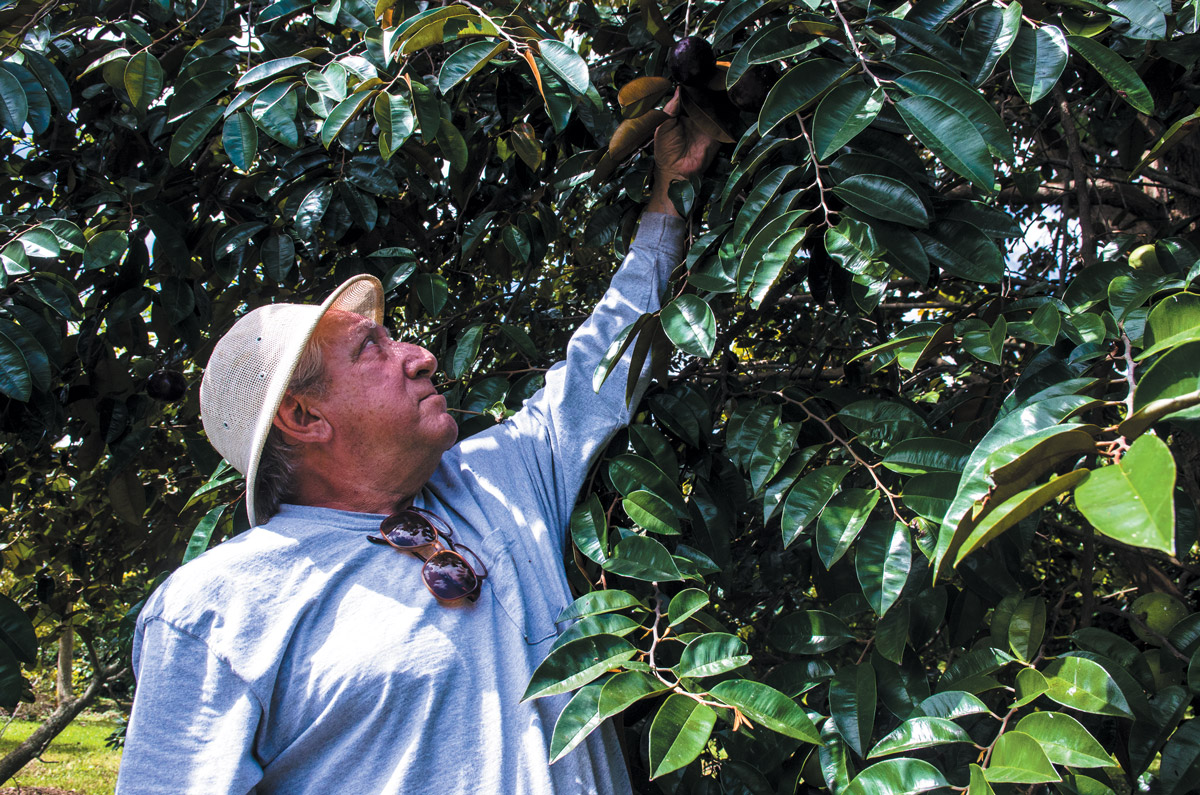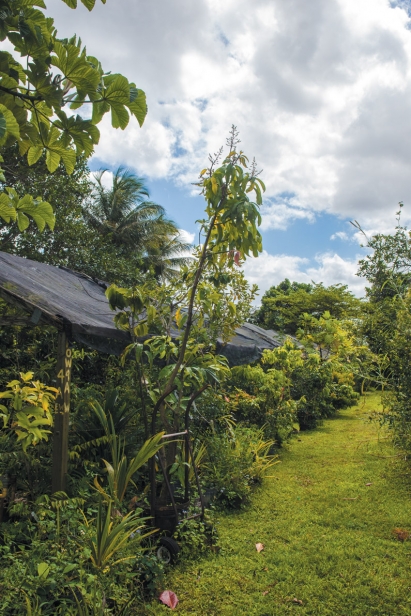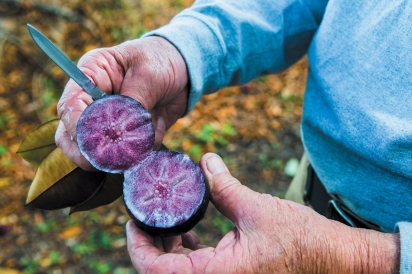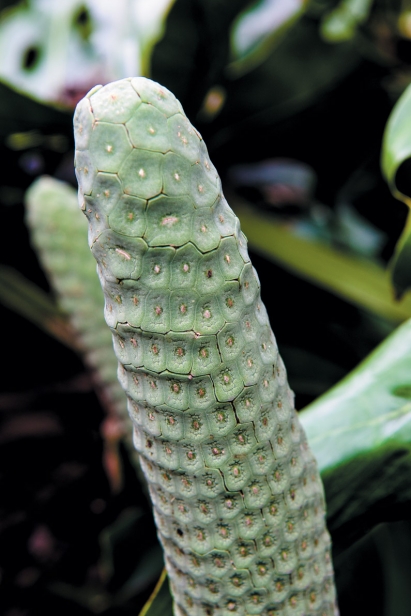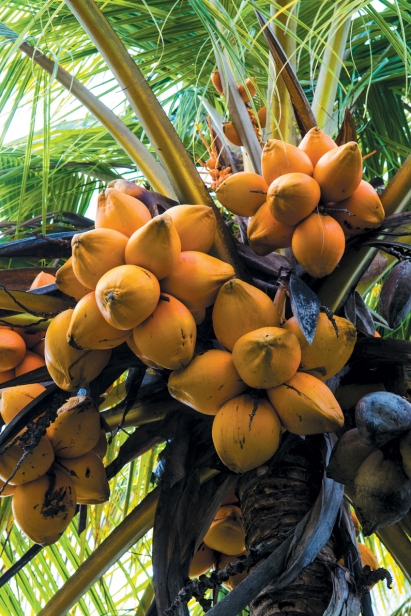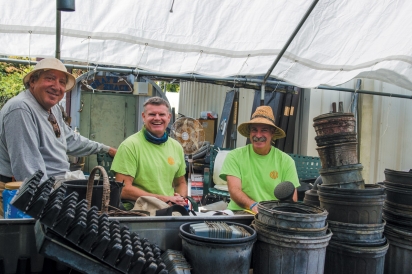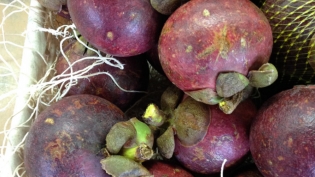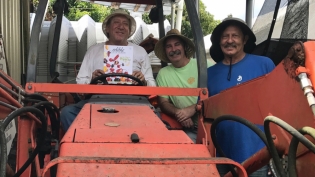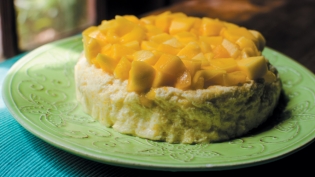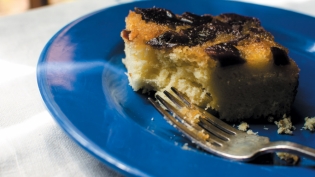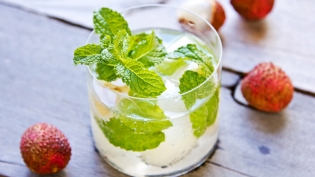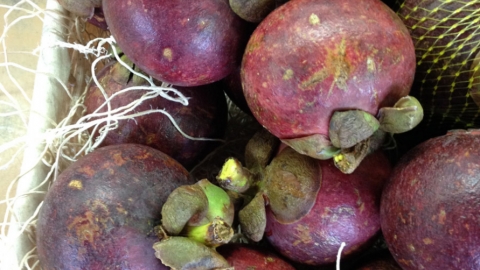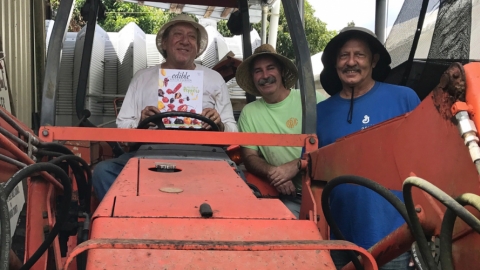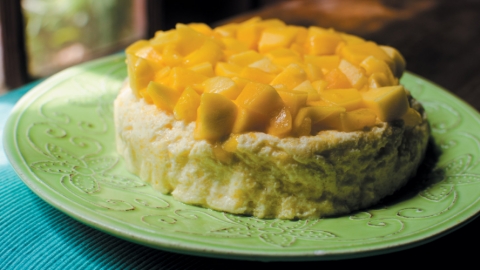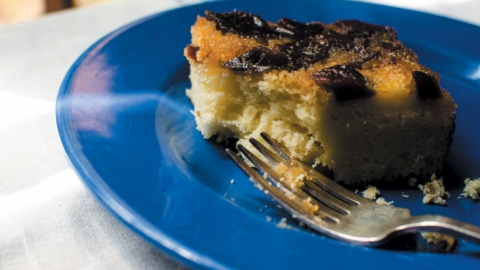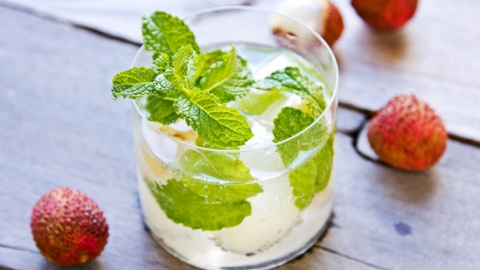For the Love of Rare Fruits
Wherever tropical fruits grow, fruit lovers gather – throughout Florida, Hawaii, California, Australia – to swap seeds, share advice and tell tales. In a west Broward suburb, Rare Fruit and Vegetable Council members get their hands dirty working their own tropical paradise.
What makes this affinity group unique is their research garden in Southwest Ranches, known as “208” – a lush, three-acre property filled with hundreds of trees; a shade house and educational pavilion; raised vegetable beds and even a tranquil pond. There’s at least one story behind every one of those trees, too.
“Those are loquats,” says Murray Corman, pointing out a cluster of pale orange, downy apricot fruits, also known as Japanese or Chinese plums (Eriobotrya japonica). “They’re in the apple family – you can make a pie out of them.” A few steps away, he talks about the mountain soursop: “We’ve been supplying its leaves to a company doing research into the efficacy of anti-cancer properties.” On a mid-winter tour, Corman – described by his colleagues as a walking encyclopedia – looks every part the plant explorer, in pith helmet, (knife) at the ready to slice into a ripe specimen.
Caimito (star apple), jackfruit, mountain soursop, ambarella, giant granadilla, luffah, cashew apple, cacao, custard apple are all on Corman’s tour. For mango aficionados, there are 64 cultivars; lychee lovers can find eight varieties here; and there are 20 cultivars of avocado. Lesser-known fruit trees include ice cream bean, breadfruit and macadamia. The garden also grows and sells plants used as herbs and spices: black pepper, cinnamon, edible ginger, bay rum and allspice, to name just a very few.
While the public gets to visit the property for the twice-yearly rare fruit sales, the group’s 200 or so members get to dig in, literally, helping tend the garden; learning about fruits and growing them at regular meetings and workshops; and hanging out together.Along with colleagues Karim Rossy, a civil engineer, and David Harold, who works in IT, Corman – owner of Garden of Delights, a plant nursery of tropical and subtropical fruit trees and palms – agree that the one of the council’s biggest benefits is social. “It’s the camaraderie,” says Rossy, the group’s vice president. “It’s a circle of friends with fruit in common.”
Longtime Club
The mutual love of fruit unites all, from newcomers to the tropics to horticultural fanatics. In the latter category are many South Floridians, members of RFVC as well as the Rare Fruit Council International (RFCI), some of whom made appearances in Adam Leith Gollner’s book The Fruit Hunters: A Story of Nature, Adventure, Commerce, and Obsession, also made into a documentary by Yung Chang.
One of the local legends was the late William F. Whitman, one of the founders of the RFCI, who was a self-taught horticulturist who managed to grow some of the most exotic tropical fruits at his Bal Harbour garden. “He would walk around his property, pulling weeds out of the mulch with his toes,” recalls Corman, then a nursery inspector. Today, the William F. Whitman Tropical Fruit Pavilion at Fairchild Tropical Botanic Garden houses exotic tropical fruit, and some of Whitman’s trees are growing in the 208 garden.
Breaking Bread ... Fruit
Good food is better when you eat it together, and at holiday parties and get-togethers, RFVC members share different dishes and tips. “I’ve learned more about cooking with tropical fruits,” says Corman. “Thai coconut sticky rice with mango – was that Nam doc mai, or was it Okrung?” he ponders. Jerk chicken using Scotch bonnet peppers and allspice; codfish and ackee; kimchi with Korean hot pepper, onions, garlic and cabbage; and chicken soup with moringa leaves are some of the memorable dishes served at RFVC events.
Their true calling, however, is education, Corman says. As a 501(c)(3), the council, founded in 1975, is “devoted to encourage the extension of human knowledge of tropical fruit and vegetable plants in all their aspects.” Members participate in agricultural programs in Broward Schools, host fundraisers for scholarships and take part at community events, such as the Bonnet House Orchid, Garden & Gourmet Food Festival every December.
When citrus canker in South Florida meant homeowners could no longer buy citrus, “we were there to suggest something new,” says Corman. “If there’s a pest, we try to come up with a way of controlling it.” When there’s a freeze, or disease like laurel wilt, they’re on hand to provide information on planting, growing, troubleshooting, fertilizing, propagating and picking fruits and vegetables, as well as encouraging people to eat local produce. “The only way you can control the inputs that go into your food is to grow it yourself,” he says. Corman says they’re planning on being around to share their impressive stock of information.
“Knowledge is like love,” he says. “You can give it all away, and you still have just as much.”
Explore the RFVC
Twice a year, the RFVC opens its 208 garden to the public for its plant sales in April nd October. But if you’re a member, you can also buy rare tropical plants on the Saturday following meetings the second Monday of each month. Members also gain access to germplasm stock; participate in hands-on workshops, such as grafting, air layering, pruning and jam and jelly-making. They can take advantage of their lending library and newsletter; go on field trips; and help out in the 208 garden on Saturdays and Wednesdays. Anyone is welcome –members are backyard and commercial growers, collectors and professional researchers, and people interested in growing or eating tropical fruits and vegetables. Held at the UF IFAS/Broward County Extension Service Building in Davie, meetings feature experts in the world of tropical horticulture and fruits. Students looking for community service hours are also welcome to work in the garden. Membership starts at $25 a year.


